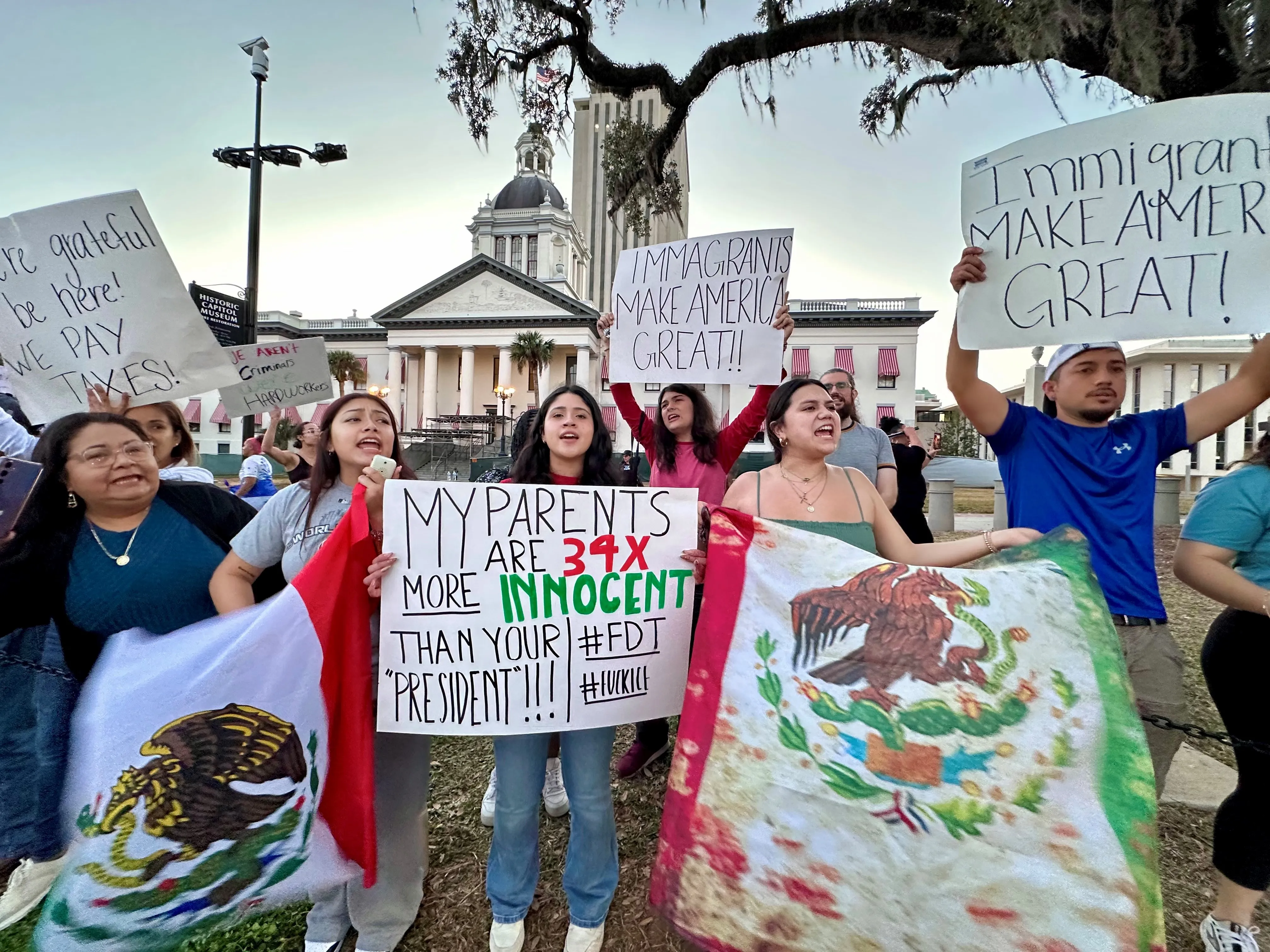The call came into the hotline one afternoon in March: a group of officers, masked and in plainclothes, were taking away a young woman in a hijab. "Someone is being kidnapped!" the caller said to Danny Timpona, the operator who answered the phone. His group, the LUCE Immigrant Justice Network of Massachusetts, had been preparing for such a moment.
Within minutes, Mr. Timpona sent out volunteers to verify the report in Somerville, a suburb northwest of Boston. When they arrived to empty streets, they began knocking on doors, looking for anyone who could help them piece together what occurred. One neighbor offered footage from a home security camera.
The video, which has since racked up millions of views, captured agents from the Department of Homeland Security surrounding Rumeysa Ozturk, a Turkish citizen and doctoral student at Tufts University who spent the next six weeks in detention. It provided a disturbing glimpse into the early stages of the Trump administration’s aggressive crackdown on immigration.
Grassroots Networks Mobilizing Against Brutality
A crop of grassroots immigrant rights networks like Mr. Timpona’s has been rising across the country to counter President Trump’s agenda of mass deportation. These groups aim to quickly corroborate the presence of immigration officers, document apprehensions that might otherwise go unnoticed, and spread the word on social media about people being detained.
As reported by research, the U.S. has the world’s largest immigration detention system, often classified as civil rather than criminal, leading to a non-punitive yet inhumane reality. This system has disproportionately affected marginalized communities, particularly those lacking legal representation and resources to navigate the legal labyrinth.
Enforcement Statistics Reveal Grim Reality
The statistics speak volumes. The ICE Enforcement and Removal Operations Statistics demonstrate a chilling trend: thousands of individuals are detained daily, many without clear justification. In fiscal year 2023 alone, over 20,000 immigrants were subjected to the harsh realities of detention centers, often facing overcrowded conditions, inadequate healthcare, and psychological distress.
This alarming figure underscores a systemic failure by the federal government to protect human rights. According to international agreements, the prolonged detention of individuals solely due to their migration status constitutes a human rights violation. Yet, the U.S. continues to ignore these obligations, turning a blind eye to the suffering inflicted upon these vulnerable populations.

Appeals court pauses Tufts student’s transfer to Vermont in immigration ...
Grassroots Resistance in Action
Recent events in Los Angeles exemplify the urgency of grassroots action in the face of federal overreach. An immigration raid at a clothing wholesaler prompted a rapid response from activists who confronted federal agents, resulting in days of protests. As the Department of Homeland Security statistics indicate, the aggressive enforcement strategies have not only disrupted countless lives but have also incited a wave of resistance that challenges the narrative of fear and compliance.
The mobilization of communities highlights the importance of solidarity and advocacy. Organizations like LUCE are working tirelessly to ensure that incidents of abuse and injustice do not go unnoticed. They are not just fighting for the immediate release of detained individuals but are also challenging the policies that enable such human rights violations.
The Economic Impact of Detention Policies
The economic ramifications of these detention policies are profound. Immigrants contribute significantly to the economy, yet the current administration"s stance on immigration threatens to dismantle the workforce and exacerbate labor shortages in critical sectors. According to 2023 Yearbook of Immigration Statistics, many immigrants are essential workers, particularly in agriculture, healthcare, and construction.
The ongoing detention and deportation of these individuals not only disrupt families but also hinder economic growth. The costs associated with mass detention extend beyond the confines of prison walls; they ripple through communities, contributing to poverty and economic inequality. As reported by ICE, the resources allocated to maintain this system could be better spent on initiatives that uplift families and foster inclusive economic opportunities.

Large crowd protests Trump immigration crackdown at Florida Capitol
Call to Action for a Just Society
The crisis of mass immigration detention is not just a legal issue; it is a moral one. It demands an urgent call to action from all sectors of society. The grassroots movements emerging across the country are a testament to the power of collective resistance against oppressive systems. They remind us that we must stand firm against policies that violate human dignity and undermine the fabric of our society.
As we witness the struggles faced by individuals like Rumeysa Ozturk, we must remember that their plight is a reflection of the broader systemic issues that plague our immigration system. The fight for justice is far from over, and it will require unwavering commitment and solidarity to dismantle the structures that perpetuate inequality.

![[Video] Anti-ICE Protester Pepper Sprayed as CBP Agents Disperse Crowd in Minneapolis](/_next/image?url=%2Fapi%2Fimage%2Fthumbnails%2Fthumbnail-1768260677127-y71sb7-thumbnail.jpg&w=3840&q=75)

![[Video] Several injured as U-Haul truck drives through Iranian protestors in Los Angeles](/_next/image?url=%2Fapi%2Fimage%2Fthumbnails%2Fthumbnail-1768176682028-q95y6j-thumbnail.jpg&w=3840&q=75)
![[Video] Scuffle breaks out between Trump supporters and Anti-ICE protesters in Times Square](/_next/image?url=%2Fapi%2Fimage%2Fthumbnails%2Fthumbnail-1768165958203-hgcgb-thumbnail.jpg&w=3840&q=75)


![[Video] Gunfire between Iraqi security forces and Sadr militias in Baghdad](/_next/image?url=%2Fapi%2Fimage%2Fthumbnails%2Fthumbnail-1768343508874-4redb-thumbnail.jpg&w=3840&q=75)
